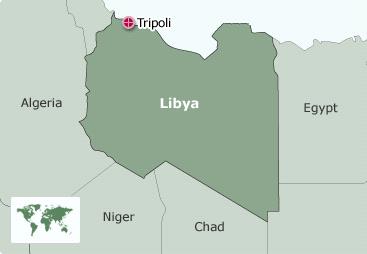Ammon News - TRIPOLI | (Reuters) - Armed protests targeting Libya's ministries and media in the capital this week have alarmed international observers who say deteriorating security conditions are becoming a matter of serious concern.
Reporters without Borders said there was cause for "grave concern about recent violent attacks on Libyan journalists, whose safety conditions are deteriorating drastically" and called on the government to act.
Gunmen in heavily armed vehicles remained in control of Libya's Foreign Ministry for a fourth day on Wednesday, while the Justice Ministry was similarly surrounded on Tuesday and other institutions including the media have been targeted.
Recent attacks included the detention and beating of a correspondent for Al-Arabiya, who was led away from the Foreign Ministry protest and held for several hours. In another example, an employee of an international news outlet was forced out of his car on Tuesday and threatened with a gun.
The national television network was also stormed earlier this week, while several other journalists have reported being held, threatened or abused while covering the protests.
The armed groups - who say they are protesting peacefully - are calling for Libya's congress to pass a law banning officials who worked for deposed leader Muammar Gaddafi from senior government posts.
The assaults were a focus for speakers at an advocacy event held for World Press Freedom day in Libya on Wednesday and UNESCO representatives said they hoped it would help yield a framework within which the media could operate safely and professionally.
"Freedom is not just being able to say whatever you want, but being able to say it in a professional way," said Lodovico Folin Calabi, the head of the UNESCO office in Libya.
The prime minister appeared in public earlier this week to say the government would not be discouraged, but no further statements have since emerged from his office.
On Tuesday night, after the Justice Ministry was surrounded, the minister told a news conference he tried without success to negotiate with the armed groups, adding they presented a "real problem" but the state would not use force on its own people.
Protests this week have also forced congress to postpone its next sitting from Tuesday to Sunday, to give lawmakers time to consider the legislation that protesters want, a spokesman said.
Depending on the wording agreed, the so-called "political isolation law" could force out a number of senior officials from office, including the congress leader and potentially the prime minister himself.
